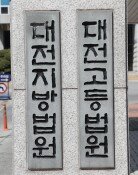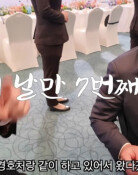Korean and Japanese Reporters Thwarted at North Border
Korean and Japanese Reporters Thwarted at North Border
Posted September. 30, 2002 22:55,
Thwarted were the attempts by South Korean and Japanese reporters to enter Shinuijoo Special District of North Korea.
North Korean Consulate in Sunyang, China, denied the issuance of visas to 40 South Korean reporters on September 30, 2002. The Consulate concluded, South Koreans are not foreigners for the purposes of visa application. North Korea also told the Japanese reporters, The foreign press cannot move freely within the territory of North Korea.
Regarding this matter, Yang Bin, the Minister of Shinuijoo Special District confirmed, North and China have not made any conclusions concerning the passage through the borders of the two countries. That is the reason the North Korean Consulate officially cited to me for denying the visa applications of South Korean reporters.
He added, On Sep. 30, I talked with Ministry of Foreign Affairs of North. In the talks, North Korean central government proposed an alternative to me. The central government seems positive about adopting a Taiwanese solution: issuing return permits to South Koreans. But it is not an easy matter to determine. It will take about 6 months to ultimately resolve all the matters in connection with the free passage across the borderline.
From this proposal of the central government of North, it can be inferred that it will allow foreign citizens to freely come in and out of Shinuijoo District. But it will apply the return permits, which is like an entry permit, to South Koreans who wish to enter the district.
Minister Yang said, Currently in Shinuijoo, lots of troops are being stationed. In addition, most of communist party agencies have not moved out. Furthermore, our line is not yet determined.
He continued, By the end of October, I will officially assume the office of Minister. Until that time, I will consider the composition of the new administrative body of the district. Within the next 6 months to come, I will finish up the fundamentals of the district so that the district can normally operate form that time.





![“배달 시키면 버렸는데”…피자 가운데 ‘그것’ 200% 활용 꿀팁 [알쓸톡]](https://dimg.donga.com/c/138/175/90/1/wps/NEWS/IMAGE/2026/01/07/133111146.3.png)

